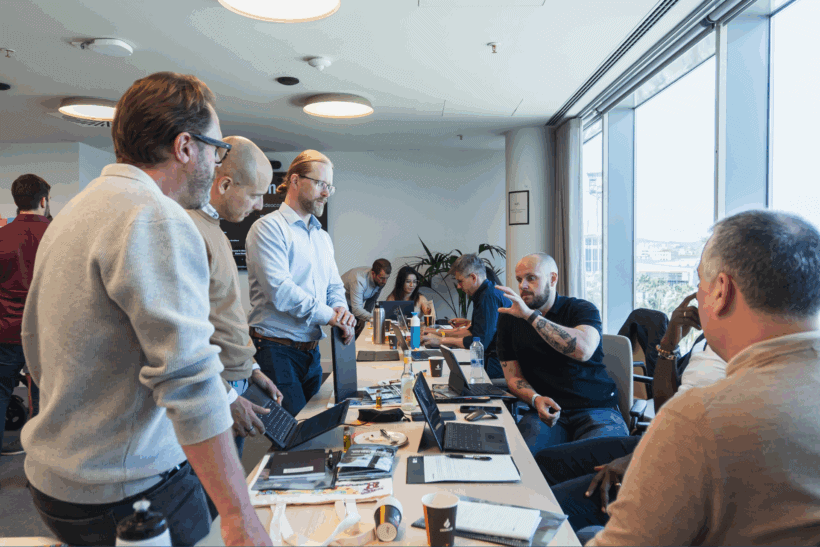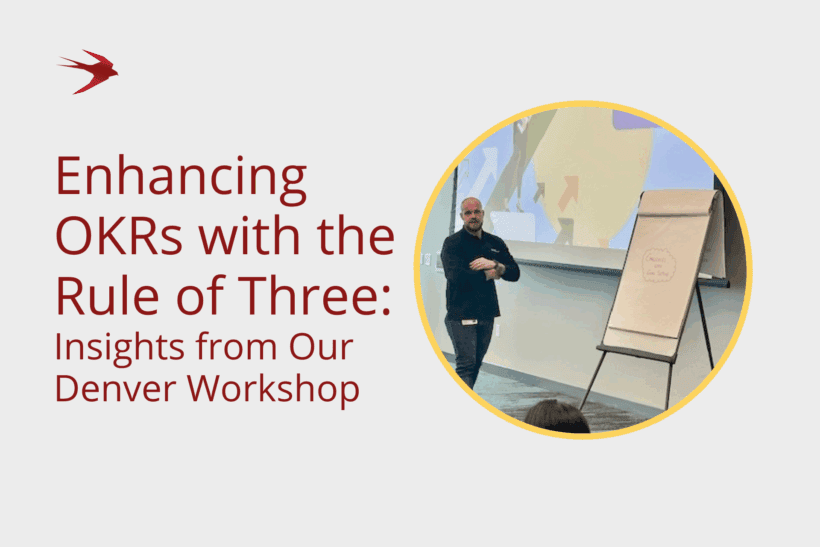In one of our most popular previous posts, we explored the parallels between running a high-functioning kitchen and implementing Agile principles in a restaurant setting. With the new season 3 of “The Bear” starting, we thought it would be fun to delve deeper into how Carmy and his team at the new restaurant could utilize Objectives and Key Results (OKRs) to drive their success even further.
OKRs provide a clear framework for setting and achieving goals, ensuring that everyone is aligned and moving in the same direction. For this post, we’ve structured each OKR in the following way:
- Objective
- Key Results
- Potential Initiatives
We have done it this way as we often see a gap where people forget to identify the initiatives that drive the KRs. If you take the time to do this in your OKR refinement workshops, it will give you a solid initiative backlog that you can then prioritise against to ensure that you focus on the right things first.
So, on to three potential OKRs for Carmy and his new venture:
OKR 1: Elevate Customer Satisfaction
Objective
Create a world-class overall dining experience
Key Results
- Achieve a 20% increase in positive customer reviews and ratings on platforms like Yelp, Google, and TripAdvisor within the next quarter.
- Reduce average table turnover time by 15 minutes without compromising service quality by the end of the next quarter.
- Successfully launch five new seasonal dishes, each receiving a minimum rating of 4.5 stars from customer feedback forms.
Initiatives
- Staff Training: Implement regular training sessions focused on customer service excellence and efficient table management.
- Feedback Mechanisms: Set up easy-to-use feedback channels for customers to share their dining experiences and suggestions.
- Menu Innovation: Collaborate with the kitchen team to experiment and refine new dishes, incorporating customer preferences and seasonal ingredients.

OKR 2: Achieve Culinary Innovation and Sustainability Leadership
Objective
Be a leader in culinary innovation and sustainability within the local dining scene
Key Results
- Obtain a reputable sustainability certification (e.g., Green Restaurant Association certification) within the next six months.
- Launch a zero-waste menu featuring five dishes created entirely from surplus ingredients and food scraps, reducing kitchen waste by 50% within the next quarter.
- Host quarterly farm-to-table events and workshops with local farmers and producers, attracting at least 100 attendees per event and increasing local supplier partnerships by 30% within six months.
- Introduce three new culinary techniques (e.g., molecular gastronomy, fermentation, or sous-vide) into the menu, achieving a minimum of 4.5-star ratings from at least 80% of customers within the next quarter.
Initiatives
- Sustainability Practices: Implement and regularly audit eco-friendly practices such as composting, energy-efficient equipment, and sustainable sourcing of ingredients.
- Creative Menu Design: Engage the culinary team in brainstorming sessions to develop inventive, zero-waste dishes and integrate new cooking techniques.
- Partnerships and Collaborations: Build strong relationships with local farmers, artisans, and sustainability organizations to enhance menu offerings and community involvement.
- Customer Education: Educate customers about the restaurant’s sustainability initiatives and innovative culinary practices through marketing campaigns, social media, and in-restaurant materials.

OKR 3: Foster a Collaborative Team Environment
Objective
Build a strong, collaborative brigade de cuisine to be proud of
Key Results
- Achieve a team engagement score of 85% or higher in quarterly employee satisfaction surveys.
- Ensure that 100% of the team participates in at least one professional development or training session each month.
- Resolve internal conflicts within 48 hours, maintaining a record of zero unresolved conflicts by the end of the quarter.
Initiatives
- Regular Meetings: Hold weekly team meetings to discuss challenges, share updates, and celebrate successes.
- Development Opportunities: Offer workshops, culinary courses, and team-building activities to encourage continuous learning and improvement.
- Open Communication: Establish clear communication channels and a supportive environment where team members feel comfortable voicing concerns and suggestions.

Set a Clear Path Towards Transformational Change
By setting and working towards these OKRs, Carmy and his team at the new restaurant in “The Bear” can ensure they are meeting their business goals, creating an exceptional dining experience for their customers and fostering a positive, productive workplace. We have identified some key results that are a mix of milestones, outputs and outcomes, yet all measurable to provide a clear path towards transformational change.
OKRs can serve as a powerful tool to maintain focus, drive improvement, and measure success – ultimately helping the restaurant thrive in a competitive industry. Remember that OKRs don’t stop at definition, Carmy and the team need to execute them on a regular cadence too!
Try our AI-powered strategy and OKR assessment tool to self-assess your strategy and OKR maturity


